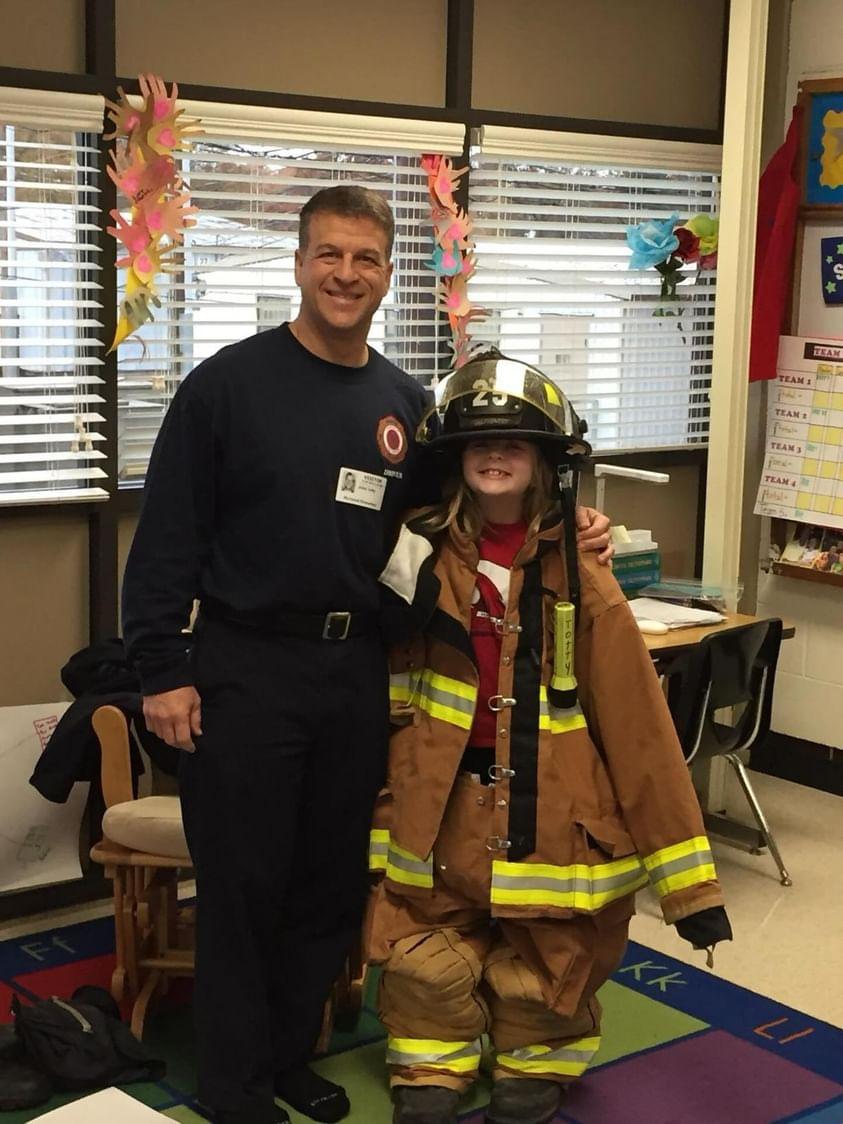It is the soreness from 150-pound gear, the late nights, the absolute exhaustion from training and the fulfillment of the duties of a job that makes emergency response work seem hard. However, it is really what is in the head that stays with first responders that makes their jobs that much more difficult. The tragedies that they see and help with may pass but mentally they stick, plaguing and affecting the lives of everyone who aids in emergencies. Paramedics, police and firefighters all carry the trauma of their work with them everywhere they go.
Allison Totty (12), daughter of Memphis firefighter John Totty, is a student in AP Research and decided to look more into the longstanding effects of her father and her father’s colleagues’ work for a project. The project calls for a 5,000-word research paper at the end of the school year, accompanied by a 20-minute PowerPoint presentation, which answers several questions on the chosen topic.
“[My] question is to what extent does experiencing trauma in the field affect the certified Memphis fire department’s firefighter [or] paramedics’ ability to properly maintain a healthy mental state within their day,” Totty said.
To get information on her topic, Totty has set up an anonymous survey for first responders to fill out when she gets to the conducting research phase of her project in February. The survey is 16 questions along with multiple parts that cover biographical information, current job status and role, trauma and general exhaustion with the job. Before her survey can even be put into action, Totty had to complete her background research, compiling 50 sources for a lengthy bibliography. Most of the sources she used for this did not come from America but rather from other foreign places like Finland. Totty has found this overall lack of education on first responders in America surprising.
“There are so many different elements [to] being a firefighter, being a paramedic [and] sleeping at a station for 24 hours,” Totty said. “ … I don’t think there’s enough education of what the job fully entails until you go to, like, their basic training.”
Totty wants to see a more obvious effort by the government to take care of first responders. Creating safe places for them and offering lectures on their work are two of the things she thinks would help.
“If it’s the exhaustion, find out some way to shorten their shift lengths or have [not] necessarily breaks, but just [a] time to breathe,” Totty said.
About 95.6 percent of firefighters are men, usually in their thirties and forties. Totty attributes some of the reluctance to talk about trauma to the generational trends of men to not talk about their emotions. This trend is called Normative Male Alexithymia and is due to men attempting to fit into a masculine norm.
“Most of the people in the fire department are men and they don’t talk about their mental health that much,” Totty said. “By doing a survey it’s more anonymous and [I get to know] how these events affect them.”
On average, a fire station will have 33 calls in a 24 hour period. Not all of these are the most tragic and traumatizing events, but some are. Post-traumatic stress disorder can come from these situations, making life outside of the workplace hard. Many experience worsened mental health due to seeing the suffering of others. Even still, many can be injured in the field.
“Even growing up myself, I didn’t know the full extent of what first responders do,” Totty said. “I just thought they [go put out fires] but you don’t know how the fire looks … It’s pitch black inside. You cannot see your hand in front of your face.”




































